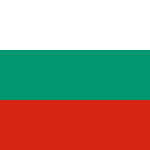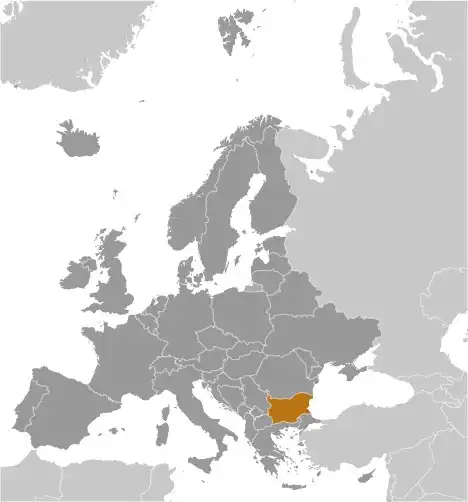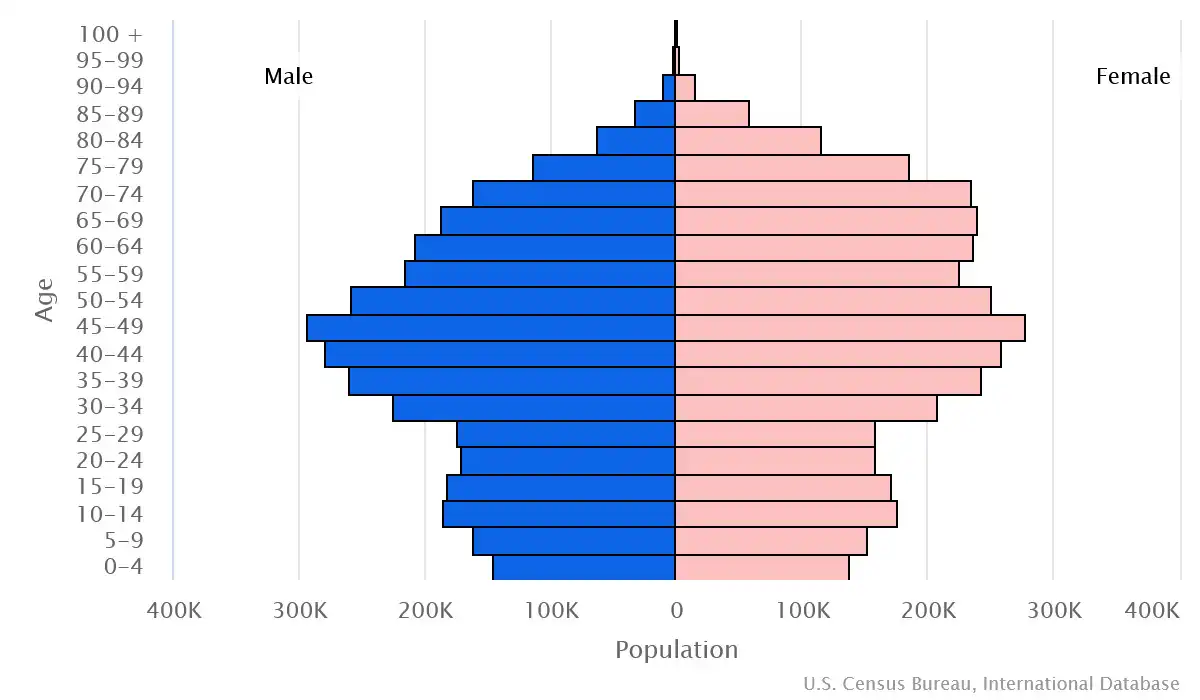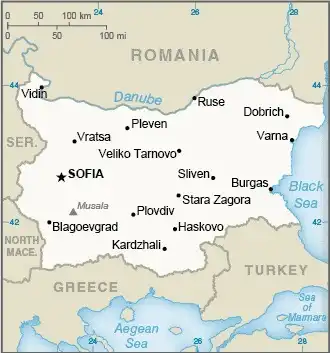
Bulgaria
Veröffentlicht: 18. June 2022 - Letztes Update: 28. February 2025
Country Data Dashboard

Population
6,782,659
Growth: -0.66% (2024 est.)
GDP
$102.408 billion
(2023 est.)
Area
110,879 sq km
| Government type: | parliamentary republic |
| Capital: | Sofia |
| Languages: | Bulgarian (official) 77.3%, Turkish 7.9%, Romani 3.5%, other 1%, unspecified 10.4% (2021 est.) |
People & Society
Ethnicity (2021 est.)
Religion (2021 est.)
Age structure

Economy
Economic overview
upper-middle-income EU economy; currency pegged to the euro with accession pending; joined Schengen area as of March 2024; global events and internal political turmoil triggered export slump and stalled reforms; EU structural funds contributing to investment recovery; skilled labor shortage driven by emigration and aging population
Real GDP (purchasing power parity) in Billion $
Real GDP per capita in $
Exports & Imports in billion $
Top 5 Import Partner in 2022 (42%)
Top 5 Import Commodities in 2022
- crude petroleum 🛢️
- natural gas 💨
- copper ore 🟧🪙
- cars 🚗
- packaged medicine 💊
Top 5 Export Partner in 2022 (42%)
Top 5 Export Commodities in 2022
- refined petroleum ⛽
- natural gas 💨
- garments 👕
- wheat 🌾
- refined copper 🟧🪙
Geography
Map

Area
Natural resources
- bauxite 🪨
- copper 🟧🪙
- lead 🪙
- zinc 🔩
- coal ⚫
- timber 🌲
- arable land 🌱
Climate
temperate; cold, damp winters; hot, dry summers
Historical Background Information
The Bulgars, a Central Asian Turkic tribe, merged with the local Slavic inhabitants in the late 7th century to form the first Bulgarian state. In succeeding centuries, Bulgaria struggled with the Byzantine Empire to assert its place in the Balkans, but by the end of the 14th century, the Ottoman Turks overran the country. Northern Bulgaria attained autonomy in 1878, and all of Bulgaria became independent from the Ottoman Empire in 1908. Having fought on the losing side in both World Wars, Bulgaria fell within the Soviet sphere of influence and became a People's Republic in 1946. Communist domination ended in 1990, when Bulgaria held its first multiparty election since World War II and began the contentious process of moving toward political democracy and a market economy while combating inflation, unemployment, corruption, and crime. The country joined NATO in 2004, the EU in 2007, and the Schengen Area for air and sea travel in 2024.
